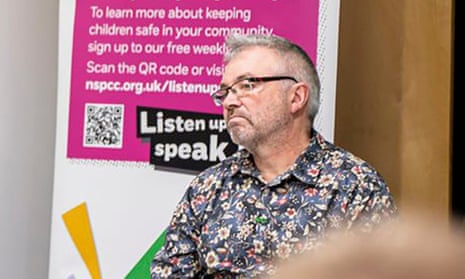The NSPCC and experts on grooming gangs have warned ministers against framing the issue as one based on ethnicity, warning that this could hamper efforts to tackle a crime that a Home Office report said was carried out predominantly by white men.
One expert said Suella Braverman, who has argued that grooming gangs are “almost all” made up of British Pakistani men, appeared more focused on presenting “hard-right talking points” than tackling the wider issues over child sexual abuse.
Braverman, the home secretary, and Rishi Sunak are to announce new efforts to tackle grooming gangs on Monday, with the prime minister due to say that “political correctness” has for too long hampered efforts.
Citing high-profile mass cases of grooming in Rochdale and Rotherham, Braverman argued on Sunday that the crime was perpetrated almost exclusively by British Pakistani men against white girls, as happened in those instances.
However, a Home Office report from 2020 on group-based child sexual exploitation found that the majority of offenders were young white men and it was not possible to conclude whether any particular ethnic group was disproportionately represented.
Sir Peter Wanless, the chief executive the NSPCC, said the children’s charity welcomed the planned creation of a grooming gang taskforce, but said this “must be backed up with funding for services to help child victims recover and support for a justice system that is struggling to cope”.
He said: “It’s also vital we remember that any child can be a victim of child sexual exploitation and adult perpetrators do not just come from one background. Sexual predators will target the most vulnerable and accessible children in society and there must be a focus on more than just race so we do not create new blindspots that prevent victims from being identified.”
Keir Starmer, who was director of public prosecutions when the Rochdale gangs were prosecuted, said that while he agreed that “political correctness should not get in the way” of tackling the issue, it was also vital to rely on facts.
“The vast majority of sexual abuse cases do not involve those of ethnic minorities,” he told LBC Radio. “And so I’m all for clamping down on any kind of case. But if we’re going to be serious, we’ve got to be honest about what the overlook is.”
Dr Ella Cockbain, an associate professor of crime science at University College London who researches child sexual abuse and trafficking, said that while a better response on grooming gangs was needed, the Home Office report showed there was no evidence that one ethnic group was over-represented as offenders.
Braverman was “ignoring her department’s own evidence and the broader research base, and she’s choosing instead to mainstream hard-right talking points, and to push discredited stereotypes,” Cockbain told BBC Radio 4’s Today programme. “That’s really dangerous and reductive and it deflects attention away from the government’s own failings – it’s been systematically defunding core services that deal with child sexual abuse.”
Sabah Kaiser, who served as ethnic minority ambassador for the independent inquiry into child sexual abuse led by Alexis Jay, which reported last year, said it was “very, very dangerous for the government to turn child sexual abuse into a matter of colour”.
She told Today: “Child sexual abuse does not have a skin colour, it doesn’t have a religion. It doesn’t have a culture. Child sexual abuse does not discriminate. And so therefore, it is really, really important that we as a nation have a singular societal response to this issue.
“It is really important that we do not turn this very, very important issue into an issue about colour. Because let’s be frank, let’s be serious: that grabs headlines, but that is not helpful for this topic.”










